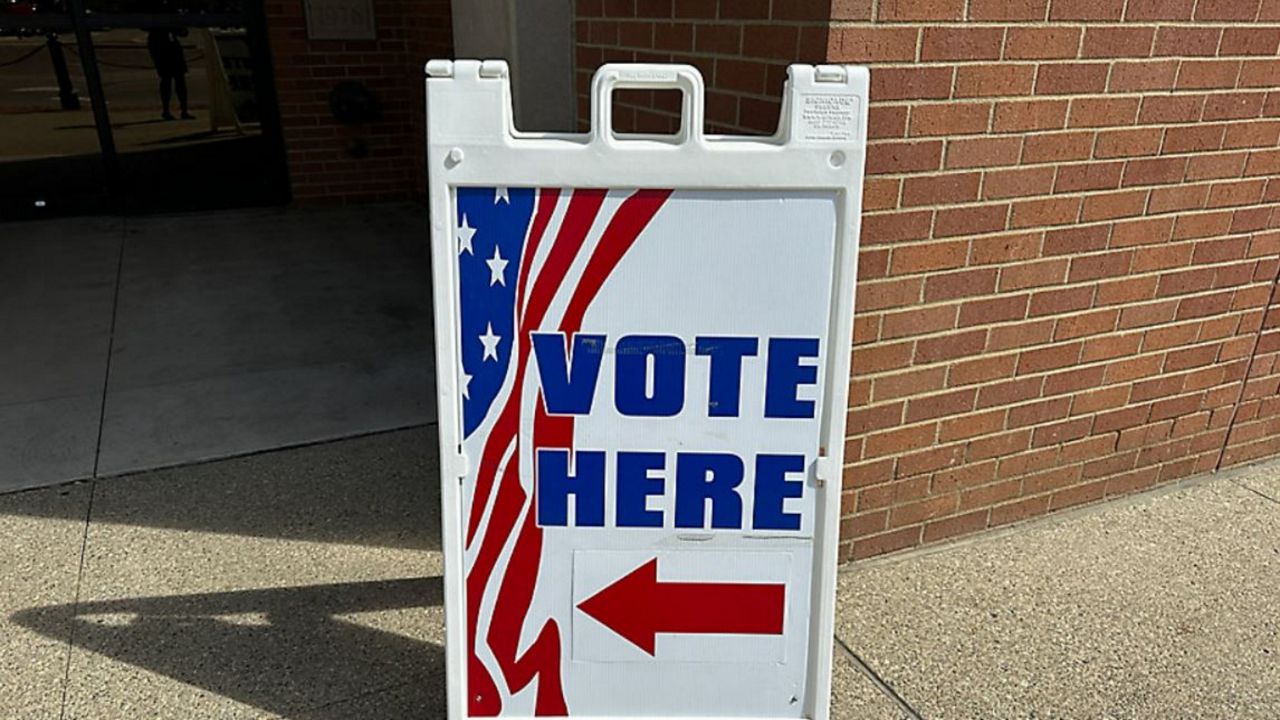COLUMBUS, Ohio (AP) — Ohio has banned gender transition care for minors and restricted transgender women’s and girls’ participation on sports teams, a move that has families of transgender children scrambling over how best to care for them.
The Republican-dominated Senate voted 23-9 Wednesday to override GOP Gov. Mike DeWine’s veto. The new law bans gender transition surgeries and hormone therapies, and restricts mental health care for transgender individuals under 18. The measure also bans transgender girls and women from girls and women’s sports teams at both the K-12 and collegiate level.
Officials expect the law to take effect in roughly 90 days. The Republican-majority House had voted to override the veto earlier this month.
Two of Kat Scaglione’s three children are transgender, and the the Chagrin Falls artist is devastated by the new law.
Her 14-year-old daughter Amity is already receiving mental health services and some medication, and would be able to continue her treatment under the law's grandfather clause, but she wouldn't be able to seek anything further, such as hormone therapies, and would have to go out of state to progress in her gender-affirming care.
Scaglione and her partner, Matt, are even considering moving their family out of state entirely, despite recently buying a house in a school district and community that's safer for Amity and her 10-year-old sister, Lexi, who is also transgender. They don't feel welcome in Ohio and don't see that changing anytime soon.
“Even as we’ve settled in and have good things right now, we’re constantly looking over our shoulder waiting for something to change to the point where we have to get out now,” Scaglione said. “It’s been hard to move somewhere and try to make it home, while you’re constantly feeling like at any moment you may have to flee.”
DeWine reiterated Wednesday that he vetoed the legislation — to the chagrin of his party — to protect parents and children from government overreach on medical decisions. But the first week of January, he signed an executive order banning gender transition surgeries for people under 18 despite medical professionals maintaining that such surgeries aren't happening in the state.
He also proposed administrative rules not just for transgender children, but also adults, which has earned harsh criticism from Democrats and LGBTQ+ advocates who were once hopeful about his veto.
At least 22 states have now enacted laws restricting or banning gender transition medical care for transgender minors, and many of those states face lawsuits. Courts have issued mixed rulings. The nation’s first law, in Arkansas, was struck down by a federal judge who said the ban on care violated the due process rights of transgender youth and their families.
The care has been available in the United States for more than a decade and is endorsed by major medical associations.
At least 20 states have approved a version of a blanket ban on transgender athletes playing on K-12 and collegiate sports teams statewide, but a Biden administration proposal to forbid such outright bans is set to be finalized this year after multiple delays and much pushback. As proposed, the rule would establish that blanket bans would violate Title IX, the landmark gender-equity legislation enacted in 1972.
Maria Bruno, public policy director for Equality Ohio, a statewide LGBTQ+ advocacy organization, said that they will be exploring whatever legal and legislative options are available to them in order to protect transgender residents and their families.
“To see partisan politics overriding the both logical and fair and also compassionate outcome is a real shame,” she said.
In a statement, Sen. Shane Wilkin, R-District 17, said he proudly supported a vote to override the veto.
“I was proud to cast my vote to override Governor DeWine’s dangerous veto of House Bill 68, but I’m incredibly frustrated that this veto-override process forced upon the legislature has needlessly delayed this important bill from becoming law for another 90 days,” he said in the statement. “While I empathize with those struggling with mental health challenges, I will always do what’s necessary to protect the children of our state. Today’s vote ensures we will do just that.”
On the other side of the aisle, Senate Democratic Leader Nickie Antonio, D-District 23, condemned the vote to override in a statement.
“Politicians have no business banning evidence-based, life-saving medical care – especially when it is endorsed by every major medical and mental health association,” she said in the statement. “We should listen to parents, providers and patients, not willfully and purposely pass harmful legislation that will add to the mass exodus of individuals from the state of Ohio. Doctors, families, and professionals will leave our state if this bill is enacted.”










